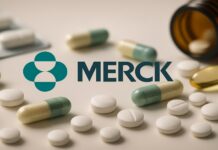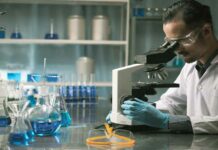“MMA is a debilitating and life-threatening childhood disorder with a poor prognosis. There are few treatment options for MMA patients including severe diet restrictions, certain medications to enhance MMA elimination and other palliative care. However, none of these treatments address the underlying cause of the disease,” said Vassili Valayannopoulos, M.D., Metabolic Consultant, and Pediatrician at the Reference Center for Inborn Errors of Metabolism at Necker-Enfants Malades Hospital in Paris, France. “Even with careful management, children with MMA often experience severe chronic symptoms including cognitive disability, growth problems, seizures, kidney failure, and acute life-threatening metabolic attacks triggered by common infections.” Matthias Baumgartner, M.D., Director, Division of Metabolism at the University Children’s Hospital in Zurich, Switzerland added, “This is an exciting trial for the MMA community as ataluren has the potential for a disease-modifying effect by targeting the underlying genetic defect in patients with nonsense mutation methylmalonic acidemia.”
Due to mutations in their genetic code, patients with MMA lack crucial enzymes that are needed to break-down certain amino acids. As a result, the amino acids accumulate in the form of methylmalonic acid. Toxic levels of methylmalonic acid lead to metabolic acidosis and tissue damage. It is estimated that nonsense mutations are the basis for the disease in an average of 10 to 20 percent of MMA patients. A genetic test is required to determine if a patient’s disease is caused by a nonsense mutation. Ataluren is the first investigational treatment designed to address the underlying cause of nmMMA by promoting restoration of the deficient enzymes.
“The expansion of the ataluren clinical development program into metabolic disorders represents the potential broad applicability of ataluren and our continued commitment to address the urgent medical need among patients living with rare, life-threatening genetic disorders,” stated Stuart W. Peltz, Ph.D., President and CEO of PTC Therapeutics
ABOUT MMA
Methylmalonic acidemia (MMA) is a rare inborn error of metabolism caused primarily by mutations in the gene for mitochondrial enzyme methylmalonyl-CoA mutase (MCM) or in one of the genes for the adenosylcobalamin (AdoCbl) co-factor. Lack of these proteins causes toxic elevations of methylmalonic acid (MMacid) in blood, urine and other tissues and can lead to metabolic crisis as well as neurological and renal dysfunction. MMA occurs in approximately 1 in 50,000 to 100,000 people. A specific type of mutation, called a nonsense mutation or a premature stop codon, is the cause of the disease in approximately 5 to 20% of patients with mutations in the MCM gene and approximately 20 to >50% of patients with mutations in one of the AdoCbl genes. MMA represents a disease continuum spanning from the most severe infantile onset form to a more benign adult onset form. The most common phenotype presents during infancy and leads to severe (or life-threatening) metabolic acidosis that can result in coma and death despite aggressive intervention.
Currently, there are few treatment options for MMA which include, severe diet restrictions, special medication to enhance MMA elimination and reduce MMA production in the intestine, and other palliative care. Affected individuals may experience episodes of vomiting, dehydration, and lethargy. Long-term complications can include feeding problems, growth failure, intellectual disability, and chronic kidney disease.
ABOUT ATALUREN
An investigational new drug discovered by PTC Therapeutics, ataluren is a protein restoration therapy designed to enable the formation of a functioning protein in patients with genetic disorders caused by a nonsense mutation. A nonsense mutation is an alteration in the genetic code that prematurely halts the synthesis of an essential protein. The resulting disorder is determined by which protein cannot be expressed in its entirety and is no longer functional. Ataluren is currently being investigated for use in patients with genetic disorders due to a nonsense mutation.
PTC Therapeutics and Genzyme Corporation formed an exclusive collaboration in 2008 to develop and commercialize ataluren worldwide. PTC Therapeutics will commercialize the product in the United States and Canada, while Genzyme will commercialize ataluren in other regions of the world. The development of ataluren has also been supported by grants from Cystic Fibrosis Foundation Therapeutics Inc. (the nonprofit affiliate of the Cystic Fibrosis Foundation); FDA’s Office of Orphan Products Development; Muscular Dystrophy Association; National Center for Research Resources; National Heart, Lung, and Blood Institute; and Parent Project Muscular Dystrophy.
ABOUT PTC THERAPEUTICS, INC.
PTC is a biopharmaceutical company focused on the discovery, development and commercialization of orally administered small-molecule drugs that target post-transcriptional control processes. Post-transcriptional control processes regulate the rate and timing of protein production and are of central importance to proper cellular function. PTC’s internally discovered pipeline addresses multiple therapeutic areas, including rare genetic disorders, oncology and infectious diseases. PTC has developed proprietary technologies that it applies in its drug discovery activities and has served as the basis for collaborations with leading biopharmaceutical companies. For more information, visit the company’s web site at www.ptcbio.com.
FOR MORE INFORMATION:
Media and Investor Contacts:
Jane Baj Sheryl Seapy
PTC Therapeutics, Inc. Pure Communications
(908) 912-9167 (949) 608-0841
jbaj@ptcbio.com sheryl@purecommunicationsinc.com
Patient, Family, and Patient Organization Contact:
Diane Goetz
PTC Therapeutics, Inc.
(908) 912-9256 or (866) 282-5873
patientinfo@ptcbio.com




















